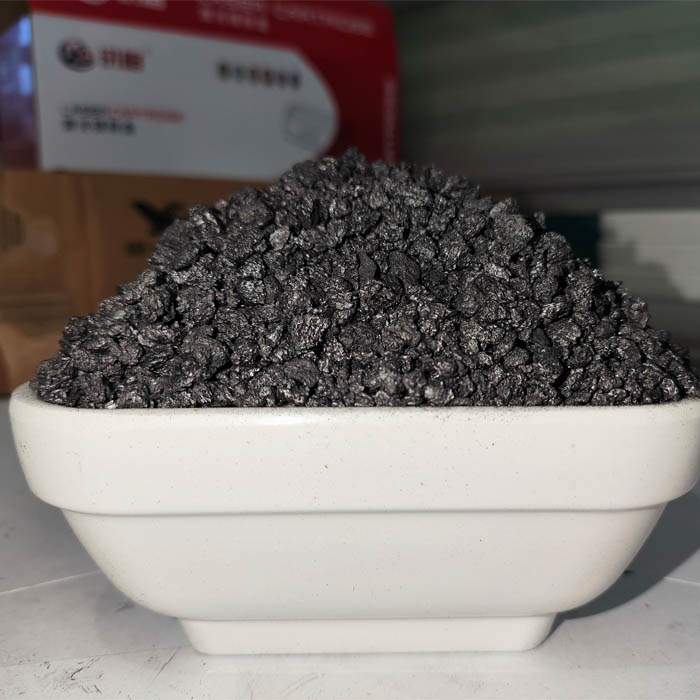Oct . 18, 2024 09:04 Back to list
Vermiculite in Soil Solutions from Leading Manufacturers for Optimal Plant Growth
Vermiculite in Soil Benefits and Applications
Vermiculite is a naturally occurring mineral that has gained immense popularity in horticulture and agriculture due to its unique physical and chemical properties. This micaceous mineral, which expands when heated, can be found in various soil amendments and potting mixes. The use of vermiculite in soil formulations offers numerous advantages, making it a preferred choice for many manufacturers and growers alike.
What is Vermiculite?
Vermiculite is a hydrated laminar magnesium-iron-aluminum silicate mineral that undergoes an expansion process when subjected to high temperatures. This process transforms the raw mineral into lightweight, golden-brown granules that are highly porous and absorbent. Its unique structure allows it to hold moisture and nutrients while providing excellent aeration, making it an ideal component for potting soils, seed starting mixes, and other planting mediums.
Benefits of Vermiculite in Soil
1. Moisture Retention One of the primary benefits of vermiculite is its ability to retain moisture. It can absorb water up to four times its weight, providing a consistent water supply to plants. This property is especially beneficial in arid regions or for indoor plants that require regular hydration but can suffer from overwatering.
2. Improved Aeration Vermiculite's lightweight and porous nature enhances aeration in the soil. Good air circulation within the soil is critical for healthy root development. Roots need oxygen to grow, and vermiculite ensures that air spaces are maintained, preventing soil compaction and promoting robust root systems.
3. Nutrient Retention Alongside moisture, vermiculite also retains essential nutrients, allowing for better nutrient availability to plants. Its cation exchange capacity (CEC) is higher compared to many other growing media, meaning it can hold more nutrients and release them slowly to the plants as needed.
4. pH Neutral Vermiculite is generally pH neutral, which makes it a versatile component for various soil blends without altering the pH balance. This neutrality is particularly advantageous for growers concerned about pH levels influencing plant growth.
5. Non-toxic and Lightweight Vermiculite is non-toxic and safe for use in residential gardens. Its lightweight nature makes it easy to handle and mix with other growing media, thus streamlining the overall gardening process.
vermiculite in soil manufacturer

6. Disease and Pest Resistance Vermiculite is sterile when expanded, which means it does not introduce pathogens or pests into the soil. This feature helps in maintaining healthy plants and reducing the risk of soil-borne diseases.
Applications of Vermiculite in Soil
The applications of vermiculite are vast and varied, contributing significantly to horticultural practices
- Potting Mixes Many manufacturers incorporate vermiculite into potting mixes, combining it with peat, compost, or other organic materials to create a well-balanced medium suitable for container gardening.
- Seed Starting Its moisture retention capabilities make it an ideal medium for seed starting. The fine texture of vermiculite allows for good seed coverage and ensures that seeds remain moist without becoming waterlogged.
- Rooting Cuttings When propagating plants, vermiculite is often used as a rooting medium. It supports healthy root development and reduces the chance of rot.
- Soil Amendment Gardeners often mix vermiculite into garden soil or landscape beds to improve drainage and aeration, especially in heavy clay soils.
Conclusion
Vermiculite is an exceptional soil amendment that enhances the quality of growing media, providing a myriad of benefits for both amateur and professional growers. Its properties of moisture retention, aeration, nutrient retention, and non-toxicity make it an essential component in horticulture. As interest in sustainable gardening practices continues to rise, the demand for high-quality soil amendments like vermiculite will likely see significant growth. Whether used in small home gardens or large-scale agriculture, vermiculite improves the health and productivity of plants, warranting its position as a staple in soil manufacturing and horticultural application.
-
Thermal Insulation Cups Materials Exporters - Quality & Durable Supplies
NewsAug.22,2025
-
High-Purity Graphitized Petroleum Coke & Low Nitrogen Recarburiser
NewsAug.21,2025
-
High-Performance Fe-C Composite Pellets for BOF
NewsAug.19,2025
-
Tundish Dry Vibrator: Enhance Refractory Life & Casting Efficiency
NewsAug.18,2025
-
Building Material for Round Wall Exporters: Quality & Durable
NewsAug.17,2025
-
Low Nitrogen Graphitized Petroleum Coke | High Purity Recarburiser
NewsAug.16,2025
